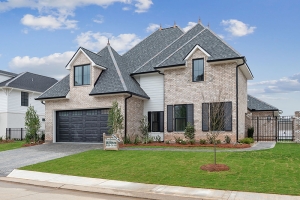A second home to many is a vacation home or an investment home. In order for it to be a smart investment, you should do your research and plan ahead. So it will not become a financial heartache, here are several things to consider before you purchase a second home.
1. What Will You Use It For?
As mentioned before, a second home can be used for a vacation home or investment and can even be used as a secondary residence for work. You will need to decide what you are using your second home because a lender will need to know. Investment properties are more risky for a lender while a vacation home or secondary residence are not as risky. The secondary residency and vacation homes will usually have a lower interest rate than an investment property.
2. How WIll You Finance It?
Unless you have a chunk of cash on hand you will more than likely need to get a loan to purchase your second home. Remember depending on what you are using your second home for will determine which loan option is right for you. If you are purchasing a second home as a vacation home, then you will more than likely qualify for a conventional mortgage, secondary mortgage, or a jumbo loan. If you have a current mortgage and a lot of equity in your primary home, you might be able to obtain a
Home Equity Line of Credit (HELOC) or cash-out refinance.
3. Do You Have the Funds?
You want to create a budget to make sure you can afford closing costs as well as ongoing costs that come with owning a second home. When creating the budget, keep in mind the down payment for a second home is typically a minimum of 25% of the purchase price. Your debt-to-income (DTI) ratio is 43% or lower in order to qualify for a mortgage for a second home. As far as homeowner insurance goes, you will need to take out comprehensive insurance on a second home no matter if it is a vacation home or you are renting it as an investment.
4. You Don’t Have To Go It Alone
To make it a bit more affordable and easier for financing, many purchase a second home with friends and family and split the costs. In order for it to work, you need to treat the arrangement as a business. Everyone can benefit, gain an asset and save money by splitting the costs.
5. Make a Plan for When It’s Not in Use
A second home might have times when it is not being used, so it is good to have a plan for this time. If this is a rental income property, you need to come up with a plan if you do not find a tenant right off the bat. If it is a vacation home, think about renting the home out to other vacationers when you are not using it. If this is the case, there are tons of management companies that can take care of the process.
If you are in the market for a second home, now might be a perfect time for you to purchase one. Choose a realtor from the area that can help with the process from start to finish. A local sales agent can be especially beneficial when it comes to vacation homes, as they know the area best.

